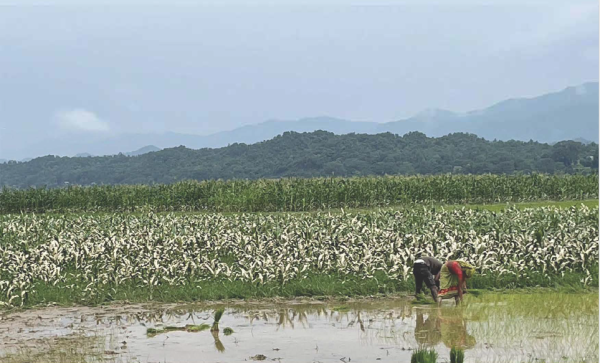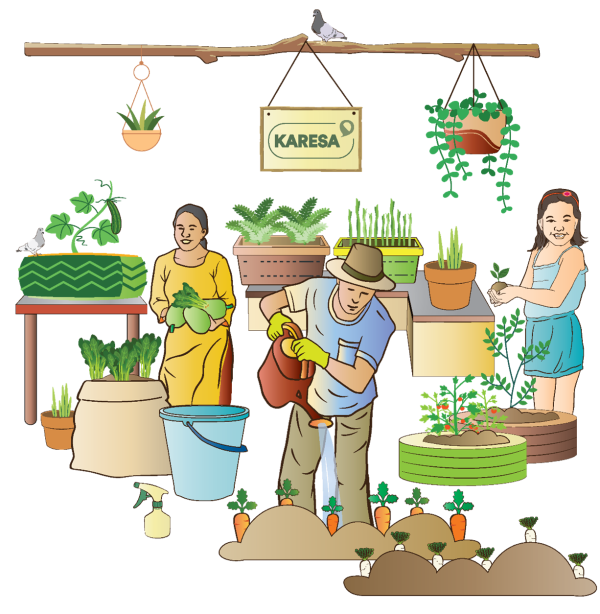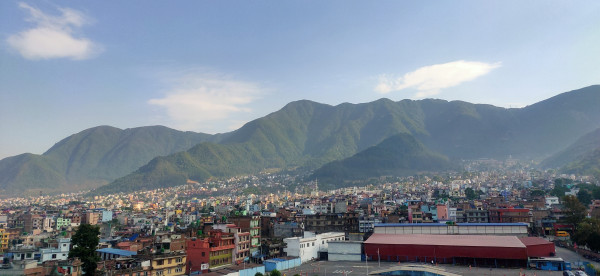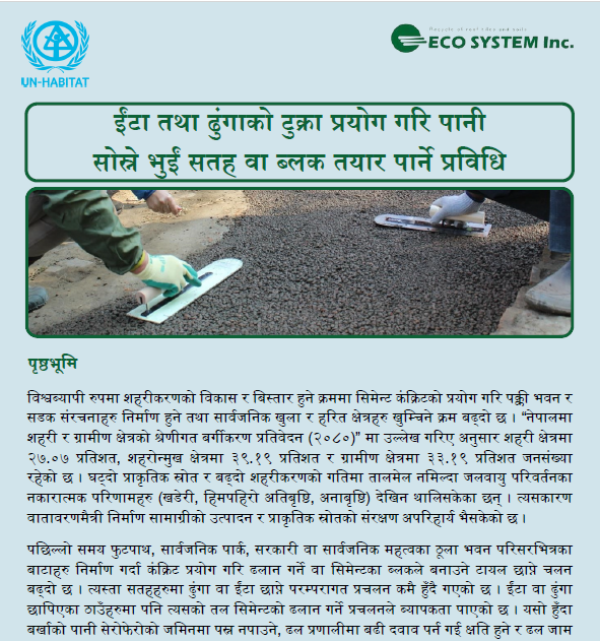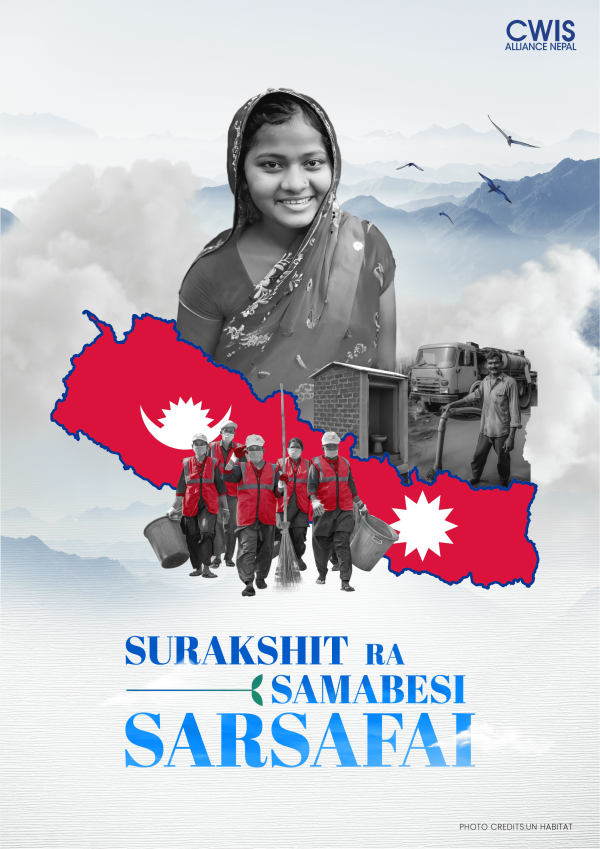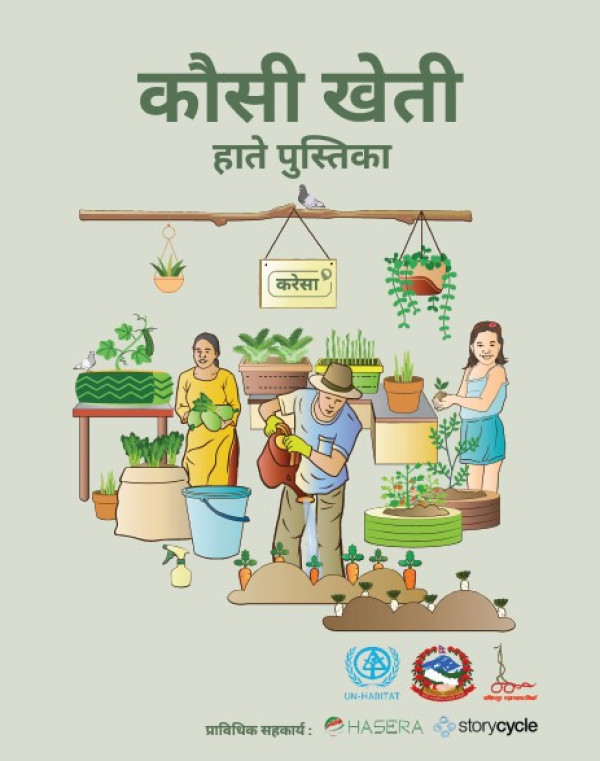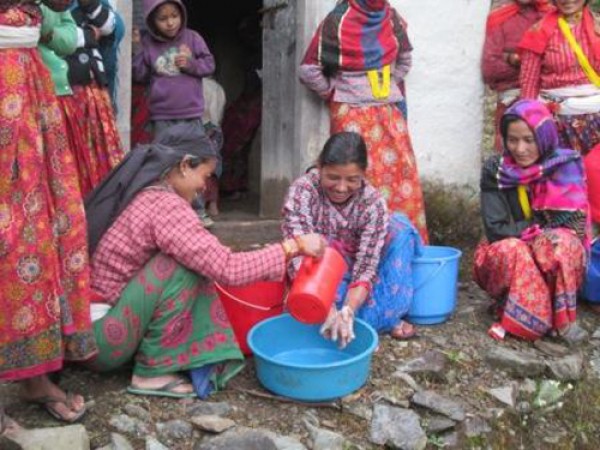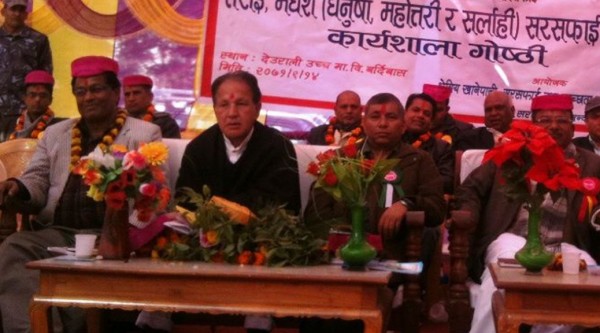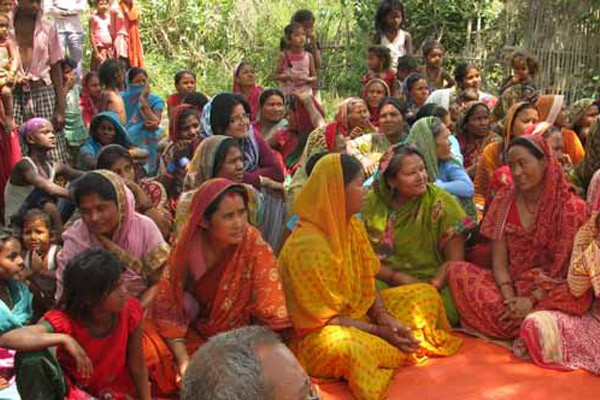GSF, UN-Habitat reaches out to differently abled in fighting against COVID-19
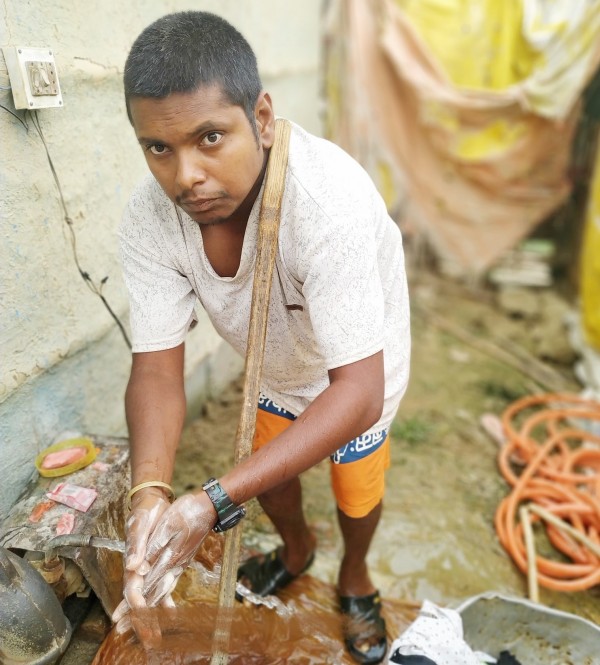
Ram Kumar Sah, 27, of Iswarpur Municipality, Ward No. 3 in Bhaktipur,
Sarlahi, is physically disabled with foot injuries. As he lives 365 kilometres
east of capital Kathmandu, Sah has never got the opportunity to learn the
nitty-gritty of hygiene and sanitation.
He never realised that hand washing was important to
maintain personal hygiene. “Whenever there was availability of water, I used to
wash it but I never thought it was mandatory,” he said. Things, however,
changed when Manoj Kumar Sah, Municipal Coordinator of Bagmati Welfare Society
Nepal (BWSN), an implementing partner of the Global Sanitation Fund
(GSF)-UN-Habitat for total sanitation campaign, visited Sah’s house in a door to
door campaign and taught him the basics of hand washing in March.
“I have learnt that the hand washing with soap is important to
avoid infection of COVID-19. The total sanitation facilitator taught me about
cleaning hands with soap,” said Sah. Now, he frequently washes his hands before
every meal, after using toilet and in every available situation. “Earlier, I
did not have the habit of washing hand regularly and hardly practiced it,” he
further said. “These days, I make sure that all members of my family wash their
hands regularly and I guess washing hand will become our habits now onwards.”
The BWSN has reached out to five more differently-able
persons in the same community and have plans to focus on these groups for hand
washing campaign.
“We have realised that in most cases, disable people along with
pregnant women, nursing mothers and elderly people get ignored during pandemic.
So, we make sure that they are well-informed about the benefits of washing hand
and to prevent themselves from COVID-19,” said Dipendra Thakur, District
Coordinator of the GSF, UN-Habitat. In Sarlahi, training young children to wash
their hands with soap has been effective in reaching out to the elderly people
in the family.
The Water Supply and Sanitation Collaborative Council has
supported the GSF, UN-Habitat and the BWSN to launch the total sanitation
campaign in 16 wards of Hariaun Municipality, Iswarpur Municipality and
Baswariya Rural Municipality of Sarlahi district from February 2020.
The GSF, UN-Habitat has also been reaching out to the
households having members with disability to encourage them to construct ramps
from locally-available materials for the toilets. “Few of them have expressed
happiness about the suggestions for the temporary ramp construction and we are
hopeful that they will construct it soon,” said Sah.
During the lockdown period from March 22 until now, the GSF,
UN-Habitat has reached out to 11,381 people of 16 wards of Sarlahi district for
hand washing campaign with key messages on prevention of COVID-19 with support
from the local representatives. The door to door campaign for washing hand was launched
during the second phase in early March. The staffs of implementing partners and
volunteers have started follow-up to the individual households through phones.
A total of 187 hand washing platforms have been constructed during the lock
down period.
The GSF, UN-Habitat has also deployed volunteers for
distance messaging through mobiles and telephones to create mass awareness on
steps of hand washing, hygiene and sanitation management.
The message of hand washing practice by following the World Health
Organisation’s (WHO) guidelines as well as the message on COVID-19 was
incorporated in the campaign. “As the WHO has recommended that hand hygiene is
critical to prevent human to human transmission of COVID-19, we have strictly
adopted it while implementing our programmes,” said Thakur.
The hand washing campaign continued in full speed despite the
lockdown, as the local government got actively involved and supported the
campaign. “The local government’s involvement made it easier to reach out to
the locals even during the lockdown,” said Thakur. “We reached out to the
locals through the local FM radios and public announcements.”
The hand washing campaign initiated by the GSF, UN-Habitat was
formally launched by the Chief Administrative Officer of Hariaun Municipality
in Sarlahi district.
“The support we have received in preventing COVID-19 through
hand washing campaign under total sanitation from GSF, UN-Habitat and BSWN is
commendable during this crisis because the timely intervention has saved from
huge loss,” said Ganesh Prasad Prasai, Mayor of Hariaun Municipality. “It has helped
us to reach out to the most vulnerable group through it awareness campaign on
hand washing and sanitation through mobile communication and we have seen huge
improvement in the handwashing behavior and sanitation among the locals.”
Apart from the mass awareness programmes, the GSF,
UN-Habitat has also reached out to 1,423 households in Sarlahi in April through
distance messaging under the Community Close Watch system. Out of 1,423 households,
287 households were provided series of distance messaging on hand washing and
toilet use. The GSF, UN-Habitat launched the Community Close Watch system as an
innovative avenue for distance communication as a tool to prevent the spread of
COVID-19 from April.
“While we all are exploring ways to prevent the spread of COVID-19,
we have made maximum utilization of this lockdown period by intensifying our
programmes through distance communication regarding personal and household
level sanitation,” said Rajesh Manandher, Water and Sanitation officer at the
GSF, UN-Habitat. “The newly constructed hand washing platforms and drying racks
are the results of this initiative.”
Thakur informed that after the intensified awareness
campaign on hand washing, there is an increase in hand washing practices and
has also helped in the awareness about toilet cleanliness, benefits of
handwashing and drying racks platforms in the community.
Kumar Bhandari, Program Coordinator of the BWSN, said that the
fear of COVID-19 played a positive role in creating awareness on the importance
of hand washing.
The implementing partner also supported the local government
for the data collection regarding COVID-19 and hygiene situation, distribution
of soap, mask and relief to the daily wage workers and poor households who are
badly affected by the lockdown.
